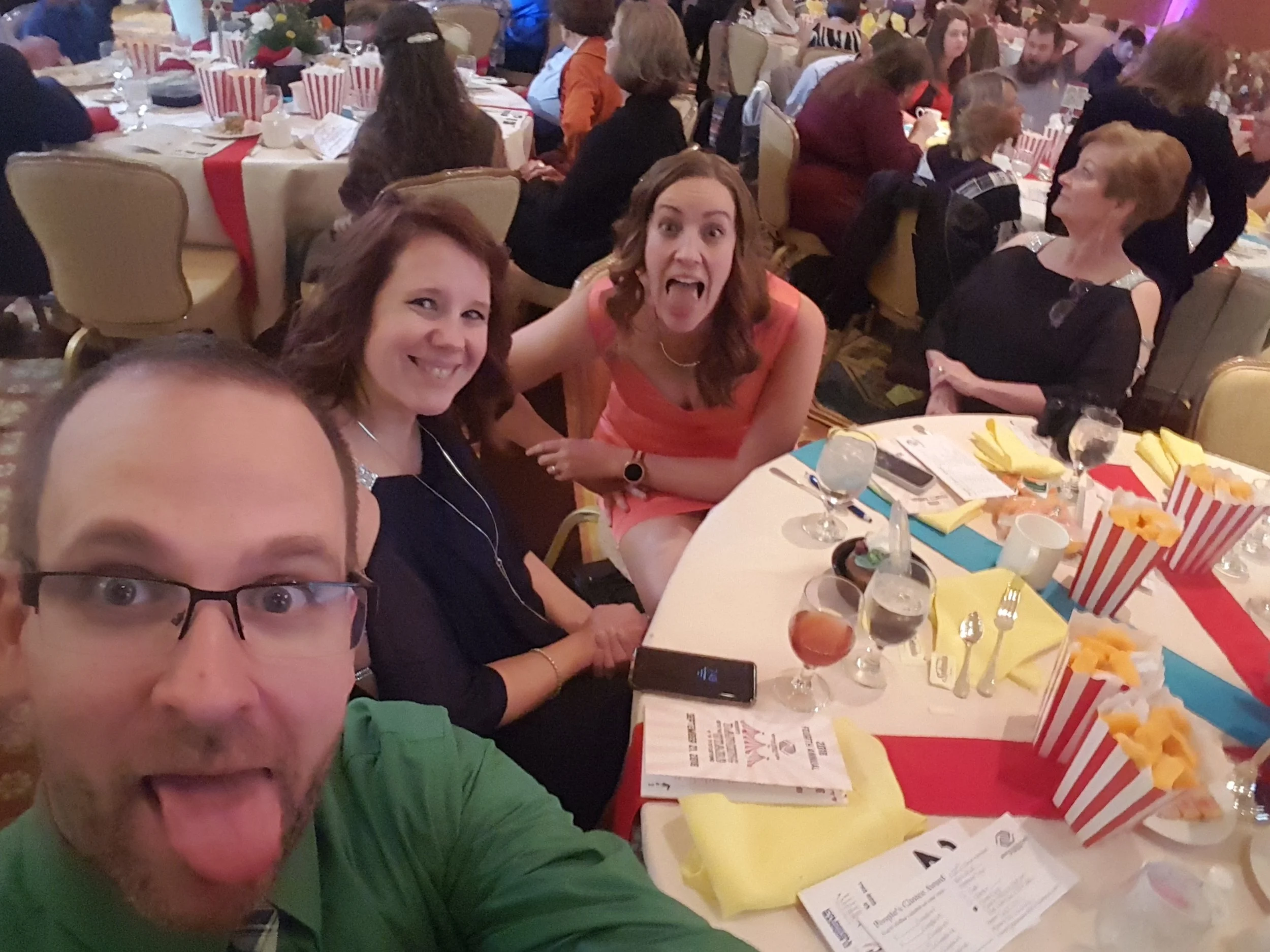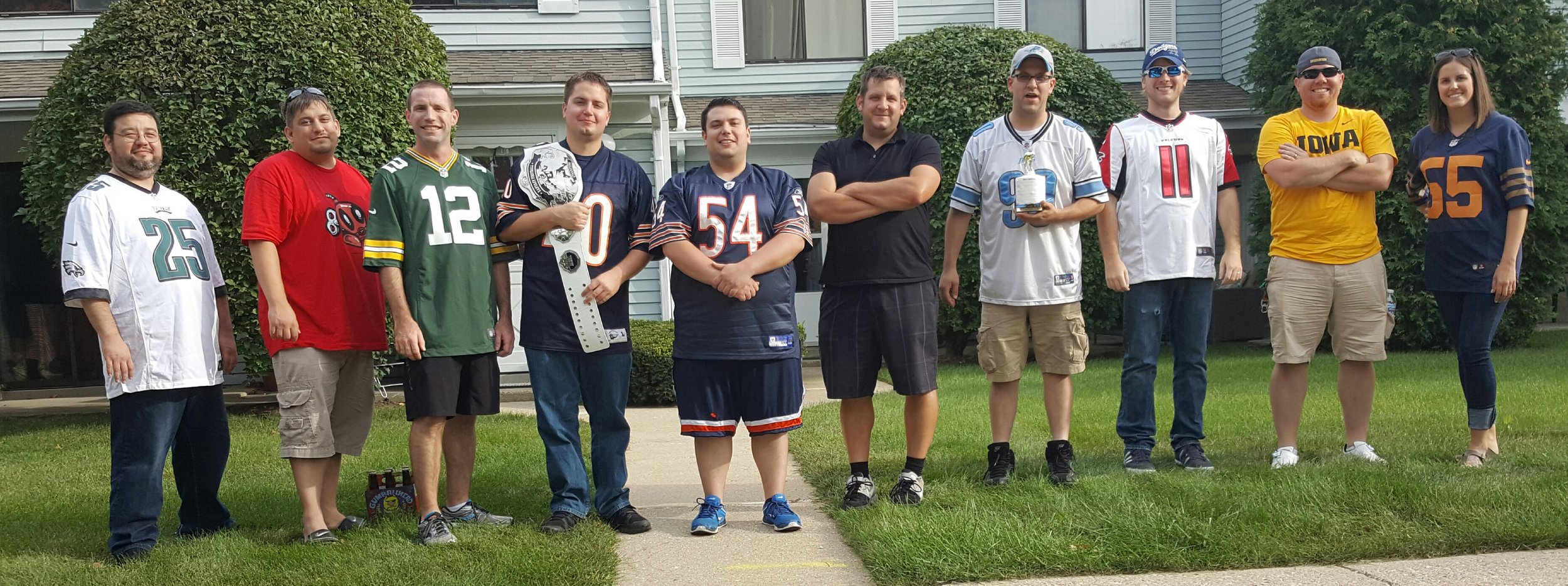Who is Bradley Koch?
Bradley Koch is a self-described "right-wing, middle-aged, Republican, Christian, straight guy" who came to Cheyenne to go to seminary, but has since returned to being a businessman. He is the father of three teenage boys. Growing up in an Air Force family, Bradley moved around as a kid and teenager, living in both Michigan (Wurtsmith Air Force Base, Grand Ledge) and Tennessee (Clarksville). He has worked in retail management in a variety of places including Benton Harbor, Michigan, and in the Chicago and Milwaukee areas. He currently works in human resources for Walmart, through their logistics and distribution center in Cheyenne.
Excerpt from interview with Bradley Koch by Whitney Dow, 2018
Koch: [01:13:51] Have I gotten any advantages for being white? That is a loaded question, okay. Have I gotten any direct advantages for being white? As in, per policy or guideline. I don’t think anybody’s stupid enough to do that in today’s society. But perception is reality. All forms of stereotype have to be based on a minute amount of truth. You cannot have a stereotype that this culture is—people say that “Jews are cheap,” or “blacks are lazy,” or this or that. That couldn’t just have been made out of thin air. At some point, enough people had to have seen it, and I’m not saying that all Jews are cheap, but at some point, people have to have seen a behavior in a culture, and culture is contagious. So if one person in this part of the culture starts to expand, that it becomes part of the status quo of our society that that becomes—nobody’s shocked when you say that stereotype. Is it true? No, absolutely not. But nobody’s shocked when you say something like that.
So have I gotten some advantages for being a white male? I’m definitely sure that at some point, whether it’s fair or not, I’ve been standing in a situation where I was chosen over somebody else based on me being a white male. I didn’t ask for it. I didn’t want it. And that doesn’t make me a racist either. But, I also think that goes both ways. I think that there’s the situation where there’s been disadvantages for me, being a white male. I’ve stood in a situation where, “oh, he’s the old white guy, or he’s the Republican, or he’s right-wing, so he’s a bigot, or he’s not gonna look the right way, or he’s not gonna be open-minded.” I think especially in today’s society, I feel that there are times specifically, where I almost feel prejudiced against, I feel like a minority, for being a right-wing, middle-aged, Republican, Christian guy, straight guy. I mean, I think it goes both ways.
Q: You actually answered the second question I was gonna ask about disadvantages. Can you point to a situation where that happened to you? Is there something you can remember that brought up those feelings in you?
Koch: [01:16:13] Situations where that happened. Not in a corporate setting. Again, I don’t think anybody’s stupid enough to do that in today’s society. But, it’s more of a feeling in a social setting, where people will automatically assume that just because I don’t agree with legislature, or I don’t agree with policy, or this or whatever, that I’m a horrible human being, or I’m a racist, or I’m a bigot. It’s difficult. I’ve been excluded from conversations because they don’t want my opinion because they know that I’m going to give an alternate opinion. It doesn’t mean that we can’t agree to disagree, it doesn’t mean that I think I’m right or they’re wrong, or vice versa. But there’s definitely, especially, like I said, with the advent of social media, with everybody having an opinion, it’s almost like, “you’re allowed to have your opinion, as long as your opinion doesn’t offend my opinion. You’re allowed to have your beliefs, as long as your beliefs doesn’t affect my beliefs.”
We’re allowed to all believe what we want, and that’s a catch-22. You can’t have, for example, religious freedom, and the ability to have freedom of religion, if then a religion says, “You can’t have homosexual marriage.” So you’re going to sacrifice the right of the religion, or the right of homosexual marriage? Which one is it? They literally contradict each other, it’s a catch-22, you can’t have all those things. So, you run into this situation where, if your opinion doesn’t align with somebody else’s it’s fine, as long as you keep your opinion to yourself. But how can we all keep our opinion to ourselves when we live in the same country, and we all vote on the same laws, and we all have to live under the same banner?
.............................
Koch: [01:33:00] Valid? It needs to be. It’s gotten to the point where if I were to take pride as being a white male, oh man. Especially if you say something like that on social media. You can’t have pride in being a white male, because you’re not—you can have pride in being of Italian descent, you can have pride of being a—it feels like you’re almost obligated to be of a nationality or an ethnic group. Explain to me how white pride and black pride are different. White pride, to me, it seems like, when I say, if I would have white pride, that’s gonna get a lot more heat, a lot more pressure than if I was proud to be an Italian, or even proud to be an American, or I was of German descent, whatever it is. Black pride, for example, okay, but what kind of black pride?
I learned the hard way, when I worked in Chicago, not all Latinos are the same. So, I was working a store with about thirty associates. I had an African American male, I had two Caucasian males who spoke Polish, which was very convenient, everybody else was Latino. But you learn very quickly, there’s a difference between somebody from Mexico, somebody from Honduras, somebody from Cuba, Puerto Rico, and Spain, even. And there’s a Latino pride there, they all share a common bond. Humans, like every other creature on the planet, draw to people that are like them, it’s the way we are wired. But, there’s a Latino pride, but then there’s also a Puerto Rican pride, and there’s a Cuban pride. So, there is a white pride, where Caucasian people are going to be drawn to the same people, but then you’re also gonna have people of Italian descent, or Greek descent, or French descent, that are going to be drawn to those, like a sub-group, if you will.
And I think that there’s been so much, it’s almost like white was the big bad, and we have this original sin of slavery, that there’s all this focus on making sure we have equal opportunity for everybody else, and we have equal spotlight for everybody else. But at the same time, that pushes the Caucasian community out of the picture. If we’re gonna be equal, it needs to be equal. It’s the “black lives matter” versus “all lives matter.” I understand that was a political thing to do with police brutality, and god forbid, I think people in authority shouldn’t be able to abuse it, but it’s gonna happen no matter where you go. But the concept of all lives matter, while it could be used of, “hey, we’re gonna support our police or our troops,” or whatever it may be, it’s true. If you truly want to be equal, all lives matter, I’m not saying black lives don’t. And you can’t say that all lives matter excludes black lives matter, because black lives are all lives, they are in the same group.
Q: I wonder why the “black lives matter” is such a trigger for people, because, if I said, like, “Save the polar bears,” or, “Save the owls.” I’m not saying I don’t give a shit about other animals, I’m saying that this is the thing that, perhaps because I live in the Pacific Northwest, that I’m concerned with. And if I’m the black person I’m concerned with. But it seems like it’s a real trigger point for a lot of people. People hear black lives matter, they say, “What are you talking about? That’s saying that I don’t matter?” And I guess I’m a little confused by this. It’s like, “Save the rainforest.” That doesn’t mean you don’t agree, or—
Koch: We’re not gonna forget the rest of the world because we’re saving the rainforest.
Q: This is something that I think is important and I’m calling out. I don’t think that—I don’t know, what some of the issues are in Wyoming. It’s like, wild horses, or whatever it is. That doesn’t mean you don’t give a shit about other things. Why is it such a triggering thing when people hear “black lives matter”? It makes certain white people, let’s be honest, like lose their shit, right?
Koch: [01:36:54] Yeah. Well, here’s the thing, we talked about earlier, about being a Caucasian male doesn’t mean I’m alt-right. The problem is, alt-right people are often Caucasian males. So, we said that all stereotypes are based on something from reality. You have people that support a Black Lives Matter movement, and I think that black lives do matter, and I think that the black community needs to be supported equally with everything else. But then you also have people that are always zealots, in every group, whether it’s alt-right or the extremists in the black lives matter. And you take a Martin Luther King versus a Malcolm X. When you look at the way that the civil rights movement was done through MLK and through Rosa Parks, versus Black Panthers, and they both wanted the same thing, but did they?
The question is, from my perspective, if we had both those in my timeline, would I think that Martin Luther King and Rosa Parks are working for equality? Yes. Do I think that the Black Panther movement or the zealots in the Black Lives Matter, I think that sometimes they come across as they’re going for more. They’re not going for equality, they’re fighting back. They’re aggressive. I don’t think— I think it almost could be to the Caucasian community, sometimes, it’s like, no matter what we gave them, or equality they got, would be good enough, and it all lives matter feels like they’re worried, sometimes Caucasians might subconsciously be feeling that they’re looking for a role reversal, and that they will become the dominant. I’m not saying we’ll get to a point of slavery, but to a point where there’s oppression, and there’s less opportunity.
And I could definitely see why some African Americans feel that way, why they would want to turn the tables, if you will. I think the trigger, like your original question, of why black lives matter could be such a hot button, especially for the white community, is that it’s very in your face, and not everybody does it in a peaceful way, and then it does become black lives are more or most important, which is not equality, which puts everybody else on guard.
Interview Transcript
Participant-Submitted Photos


